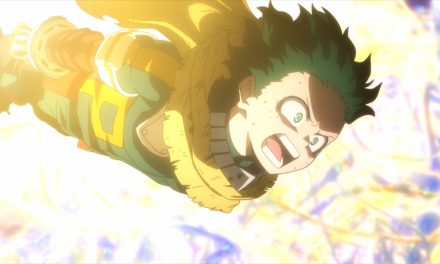
In all of known Star Wars lore, no character takes it on the chin and keeps on smiling more than the great Jedi sage Obi-Wan Kenobi. Never in the galaxy has there been a more tragic hero that, in spite of all the odds against him, keeps his head held high. To figure out why he retains his optimism, let’s go back to his beginnings.
Obi-Wan Kenobi: Origins

Our mighty Jedi General comes from the planet Stewjon (a weird tuckerization of Jon Stewart’s name), where he left at a young age to train as a Jedi. His first teacher as a youngling was Grand Master Yoda, and then a padawan under Jedi Knight Qui-Gon Jinn. His years as a padawan would be thrust into the fray of The Clone Wars, where he would earn his rank of Jedi Knight after defeating Darth Maul on Naboo. Maul had just murdered his master—handing Kenobi his first crushing tragedy. That event set into motion the destiny of one Anakin Skywalker, whose fate would also be forever intertwined with Kenobi’s.
Taking Anakin as a padawan against the Jedi Council’s better judgement, Obi-Wan would go on to train the worst tyrant the Republic had seen since the reign of the Sith ended. But before that, Obi-Wan and Anakin became generals in the New Republic Army. Kenobi led the 212th Attack Squadron alongside Anakin’s 501st Legion against the Separatists once open war broke out. When Anakin turned to the dark side, Obi-Wan faced him down, handing him his third major tragedy as a Jedi.

5 questions we want answered in the Kenobi Disney Plus series.
Wait, what the second tragedy, you ask? The death of Duchess Satine Kryze of Mandalore was as difficult for him as losing Anakin to Palpatine. He and his Master Qui-Gon had protected the Duchess for a year during a civil war on Mandalore. There, the the young Jedi developed forbidden feelings for the Mandalorian leader, and she for him. You could call them star-crossed lovers. Neither could act on their feelings due to their individual commitments to their causes. Kenobi would watch as Maul murdered her for no reason than to torment Obi-Wan in revenge. Maul would carry that vendetta all the way to his final showdown with Kenobi on Tattooine.

Other mishaps and tragedies would befall our stoic hero throughout his long and storied career as a Jedi Knight, Master and General. So what kept him going, always trying to find the bright side, even in the darkest times?
James Arnold Taylor on Obi-Wan’s stubborn optimism: “He’s a True-Believer”
Sy-Fy Wire recently interviewed James Arnold Taylor, Obi-Wan’s voice actor from The Clone Wars animated series and got to the heart of what gives Obi-Wan so much, well… heart.

They ask him, even after all the tragedy he’s faced, Where does he get the strength to keep going and stay somewhat positive?
It does go back to the true-believer aspect of the character… You know the funny thing is, there was an article that had come out where people were saying [around] Season 2 or 3, “We want more Obi-Wan,” and I did a little snarky comment like, “Yes, me too.” Then Dave Filoni goes, “Watch it, careful, I’ll give you more Obi-Wan.”
James Arnold Taylor to SyFy Wire, March 25th, 2020
And he did. And [in] every episode. Obi-Wan was getting beat up and all that … but I do think that so much of it does amass where he is finally, when we see him even in shows like Rebels, getting to give that hologram message that I got to give. To have it there, finally, it made it — for my journey as the actor, portraying the character — so much more powerful to think of all the things he’s gone through.
A Jedi forged in the crucible of experience
Another aspect that adds to this theory of being a true believer is his assignment to Qui-Gon as a padawan. Qui-Gon Jinn was a maverick Jedi. The Council was wary of him, but tolerated his defiance and obsession with old prophecy. Obi-Wan—as a youngling—was rebellious and headstrong, much like Jinn. Yoda intentionally placed Kenobi with him to mold him into a model Jedi by serving a master that didn’t do things by the book. That way, Obi-Wan could only rebel the way Yoda wanted him to; by becoming more of a rule-follower than breaker. Kenobi adopted some of Jinn’s defiant attitude, but in the end, became everything Yoda wanted him to be.

Obi-Wan would get a taste of his own medicine when he took on Anakin as his apprentice. Anakin was much like a young Kenobi, and very much like Qui-Gon in his defiant attitude towards the council. This forced Kenobi to be, for lack of a better phrase, “the adult in the room”. The only way Obi-Wan Kenobi could ever endure the years of loss and defeat is by the maturity that grew in him from his experience. His belief in the Jedi Code set him apart, and set him on the path of ultimate endurance.
There is no emotion, there is peace.
The Jedi Code
There is no ignorance, there is knowledge.
There is no passion, there is serenity.
There is no chaos, there is harmony.
There is no death, there is the Force.
Final thoughts on Obi-Wan Kenobi

The last trait that helped him endure tragic events was his ability to rise above the pettiness of political squabbles. Sure he had his allegiance to the Republic and to democracy, but he did not get bogged down in the rivalry between the Council and the Senate, or the politics between warring factions. He stuck to the code that kept him on the straight and narrow. That’s a lesson we could all learn from in the real political climate we face today. He was a master not only of “the high ground”, but also the middle ground. They didn’t call him “The Negotiator” for nothing!
To learn more about Star Wars, you can also visit the official website at www.starwars.com. To learn more about geek pop culture, visit That Hashtag Show!


![Emily in Paris Season 4 Part 1: Where’s the Drama? [REVIEW]](https://www.thathashtagshow.com/wp-content/uploads/2024/08/project_20240815_1432221-01-440x264.png)


